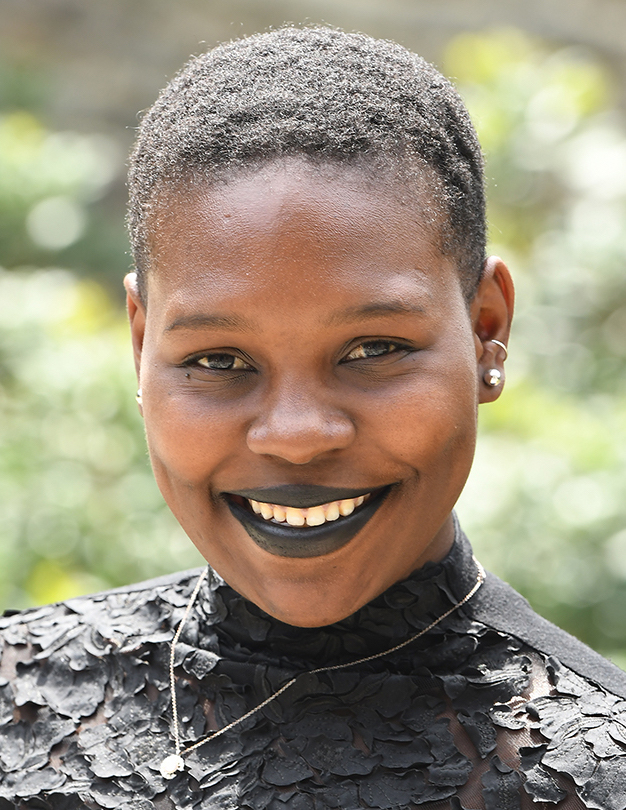PhD candidate wins Champions of Diversity and Inclusion Student Award

Ph.D. candidate in clinical psychology, Jami Pittman, received the Champions of Diversity and Inclusion Student Award at the annual Spirt of Community Awards Ceremony on April 11, 2019, for her contributions in developing and sustaining a diverse and inclusive campus. She’s humbled to have been recognized by the university and grateful that Wayne State is finding more tangible ways to recognize and combat the difficulties of this work.
For her, the good fight started soon after her arrival to WSU. She joined the Department of Psychology’s Diversity Community as the community engagement coordinator, and started a weekly, graduate-student safe space to discuss the unique tribulations people of color experience on and off campus; clinically, she provides therapy at the Wayne State Psychology Clinic, and works on the 3rd Circuit Court’s Clinic for Child Study; and conducts dissertation research with Dr. Valerie Simon at the Merrill Palmer Skillman Institute, where they explore how girls’ peer networks and exposure to interpersonal violence impact their later engagement in romantic and sexual behaviors.
Growing up “in the Deep South where traditional and conservative values dictate all aspects of society” inspired her dissertation topic, she says. “Everything we learned about sex from adults, we learned from what they did not tell us. And I was fascinated with how this backdrop of chaste morals to some extent, bred hungry, yet uninformed and sometimes regrettable, forbidden explorations of sex and sexuality.”
She credits societal denial of healthy sexuality with fostering “negative outcomes ranging from unwanted pregnancy and STIs, deep shame, and gendered sexual violence.” Treating sexuality as “taboo” has not only misinformed youth who carry this misinformation into adulthood but has limited the study of sexuality, boxing much of what research there is into a “risk-focused” approach that largely centers on the experiences of white girls, she says.
Jami acknowledges that there are power structures in place that center whiteness and are impossible for her to ignore. “Despite this, it has only been in the past month or so that I have explicitly articulated a desire to study the romantic and sexual development in black girls as opposed to ‘girls,’ as I move into my dissertation.”
As a black woman, she worried that she and her research would be discredited as “unscientific” or “too subjective,” but much like her work in the community, she realized “that not only is this work valid, but it is necessary; and if I don’t do this research, who will?”
When asked how she envisions her career after graduation, she acknowledges wanting to “change the world,” might sound “trite,” but believes she has the capacity to do exactly that.
No matter the avenue, she wants to utilize her research “to develop culturally-sound and developmentally-appropriate sexual health interventions and sexual education curricula for use at the local, state, and federal levels,” for which she’s already begun laying the groundwork.
Thanks to the Spirit of Community Awards, she’s in contact with Auntie Na, the student organization at WSU that won the organization award this year, about the potential for developing and offering sexual health services and information to the girls who utilize Auntie Na’s clinic.
A walking example of the heavy lifting that can be done in graduate school, Jami urges students to not treat the experience as a pause on life. It’s already begun!